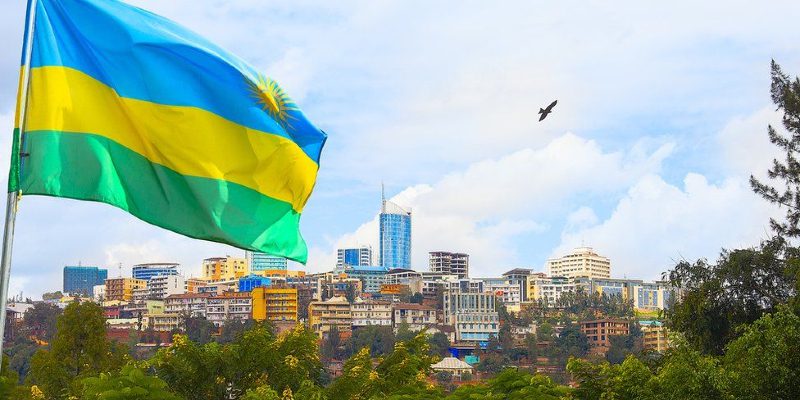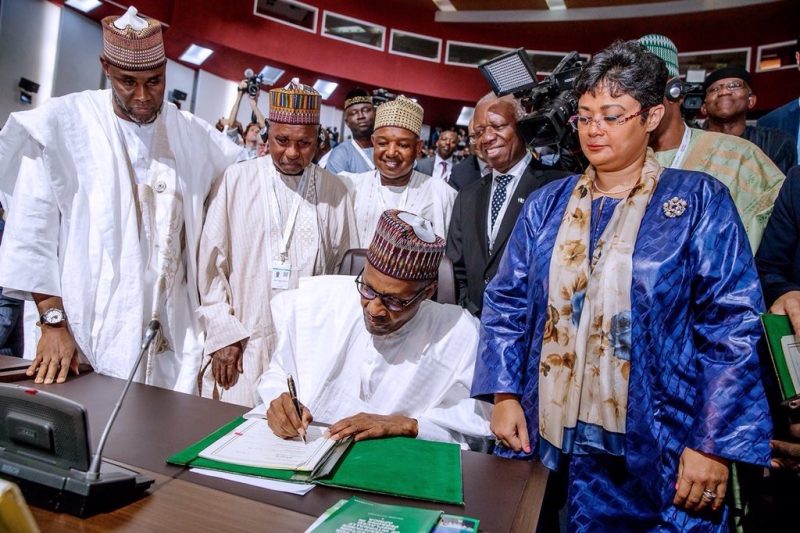Although there was an initial outcry when he refused to, the decision of President Muhammadu Buhari to sign the African Continental Free Trade Agreement (AfCFTA) was in the end greeted with mixed feelings. It would seem that Nigerians have chosen to settle into its implications.
But this could be great news. By signing the agreement, Nigeria joins other African countries (54 in total with the exception of Eritrea) in what may be the largest free trade agreement in any continent in the world. That will mean access to more markets and a better economy.
AfCFTA in a Nutshell
The African Continental Free Trade Agreement (AfCFTA) is not the first of such trade agreements in Africa. In fact, there are a number of such regional trade agreements on the continent. But this one has the largest number of parties so far.
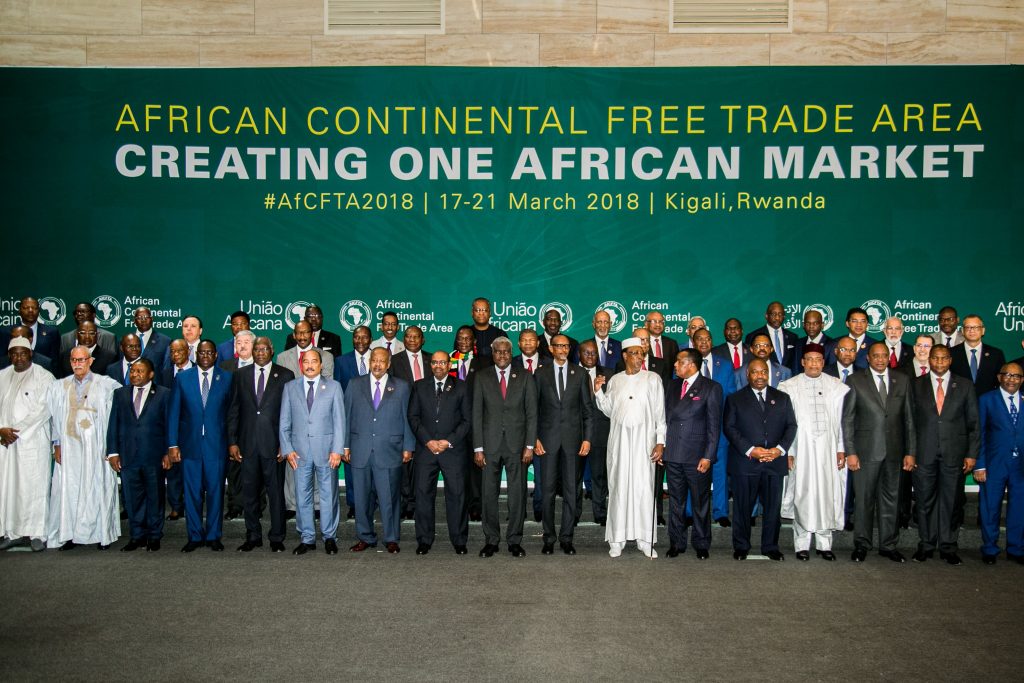

The agreement will encourage trade relations among member countries by removing tariffs for over 90% of goods traded between member countries. It will also facilitate free movement of people within member countries thus enabling a single market for air and road transportation.
In summary: Africa is committing to becoming a single business zone.
Prior to this, doing business within the continent has been hellish. But, analysts say that this agreement has the potential to increase intra-African trade by 52.3%.
Possible Positive Impacts…
1. Low Tariffs Means Easy Cross-Border Selling:
Removing tariffs (meant by design to make an imported product too expensive to be competitive in a local market) means that entrepreneurs in Nigeria can produce more goods for a broader market size and get it across our borders to sell in markets at competitive prices.
Nigeria has a number of solutions/products that would be fast-selling beyond our borders. On many fronts (fashion accessories, food items, snacks, drinks etc.) local producers have been in a losing battle with foreign alternatives.
The launch of DHL’s MallforAfrica was a clear testimony to our significant buying power of imported items. And AfCFTA creates a unique opportunity for local manufacturers to reach a more accessible pool of less sophisticated buyers and pivot to their unique needs.
2. More Money!
My people, the land is vast and green. There is room for expansion for the Tech companies that are offering fantastic solutions within this space. With this opportunity also comes the possibility of raising significant investments to power these expansions.
You may ask, how big is the opportunity? Very big, I tell you.
Out of the 10 fastest growing economies, 6 of them are in Africa (2018). To put it in geographical context, the African continent is larger than the US, China, Japan, India, and all of Europe combined.
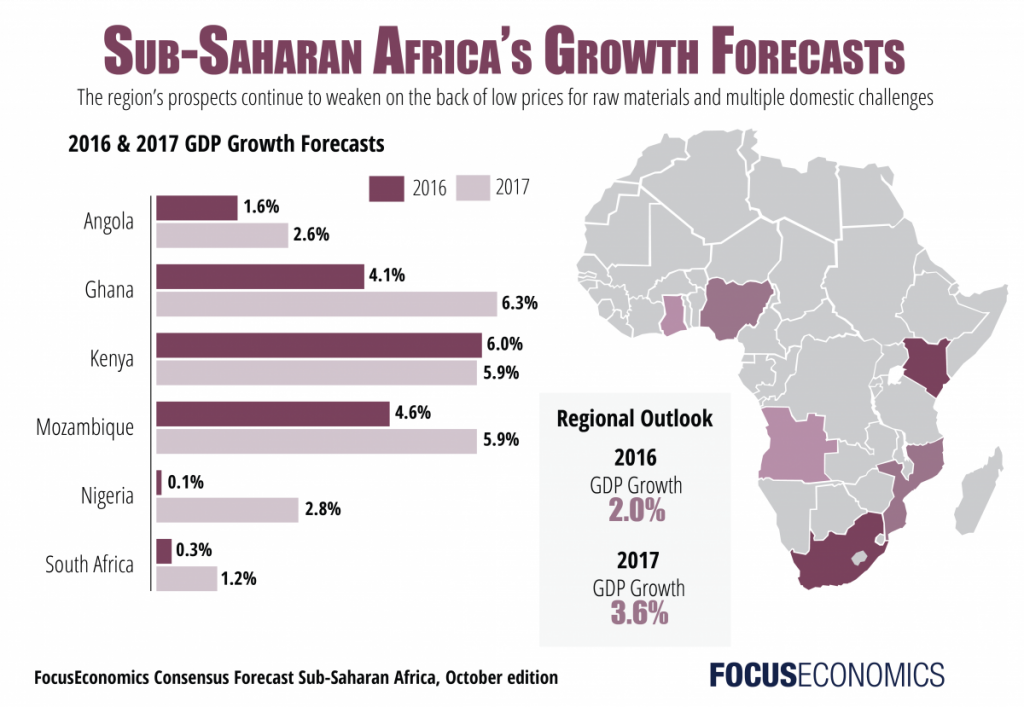

If you take out Angola, Nigeria and South Africa, the aggregate projected growth for the entire Sub Saharan Africa is about 5.7%. That means that “About half of the world’s fastest-growing economies are located on the continent, with 20 economies expanding at an average rate of 5% or higher over the next five years, faster than the 3.6% rate for the global economy.” (Source Quartz)
Rwanda’s growth rate for 2017 and 2018 respectively is 7.2% and 7.8%. Ethiopia’s growth for both years is 7.5% and 8.5% respectively.
So, we are at the centre of the future. The differentiating factor, in the end, will be the heights and depths of our aspirations as entrepreneurs.
Maybe Africa’s First True Unicorn…
With this vast green land to exploit, permit me to “guestimate” that Africa has set the foundation for any visionary entrepreneur to create the first truly African unicorn (my definition: owned by an African and entirely focused on the African market).
Africa’s economic growth which reached an estimated rate of 3.5% percent in 2018 has been projected to accelerate to 4% in 2019, possibly 4.1%. With the economies of North African countries steadily recovering and the dynamic growth in the East, any platform that positions itself for rapid expansion will rule the tide.
Possible Negative Impacts…
1. Nigeria is not Ready…
While many other African countries are racing away from their painful pasts, Nigeria seems to be jumping back into the pool. A cursory look at our 2019 budget will give you an idea of what our priorities are.
Compared to the economic growth rate of some other African nations I mentioned earlier, our dear Nigeria’s growth is about half of the average. Nigeria has a projected growth of 2.3% against annual population growth of 2.5%.
The implication? The majority of Nigerians are poor now and many more will fall below the poverty line in years to come. Most of our innovations will not scale. Cheap, low-standard products from the other countries will find a ready market here.
The implication? Without a drastic upturn of events, our people will not really have the financial capacity to push to other markets. We will most likely have a stronger wave of incoming businesses.
2. We will lose Great Businesses and Minds!
How conducive is the Nigerian business clime?
In 2016, the government began a drive towards improving the ease of doing business by inaugurating the Presidential Enabling Business Environment Council.
Orders to improve transparency and the business environment in Nigeria were signed. And, we moved up 24 places in the World Bank’s Ease of Doing Business Index in 2018. Then, the elections came and it lost steam.
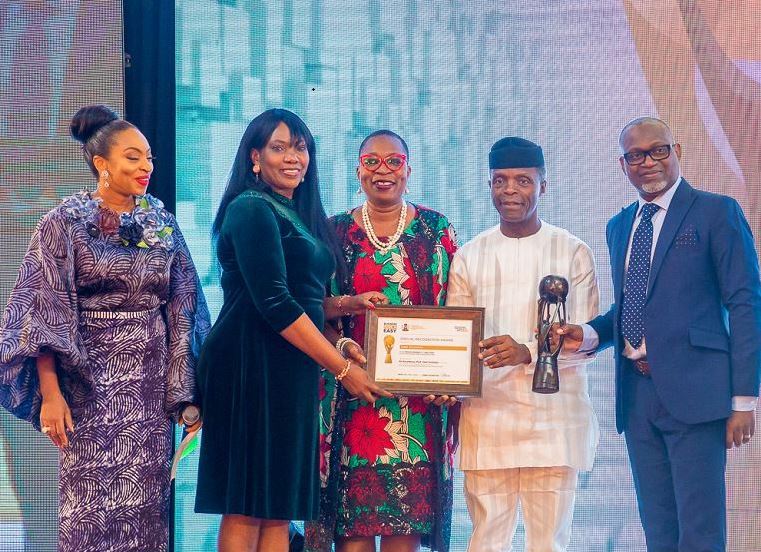

But our African counterparts did not go to sleep. Consider this:
Between June 2, 2017, and May 1 this year, 128 governments introduced a record 314 reforms benefitting small and medium business and entrepreneurs, enabling job creation, and stimulating private investment. One-third of all business regulatory reforms were in the economies of Sub-Saharan Africa (a total of 107 reforms)
– World Bank Ease of Doing Business report 2019
The World Bank Ease of Doing Business report 2019 indicates that 5 out of the top 10 reformer countries are from the African Continent (Djibouti, Togo, Kenya, Côte d’Ivoire and Rwanda). A sign that there is a real wave of trying to lift the continent towards a better competitive arena.
Rwanda for instance:
According to the report, Rwanda and Georgia are the first and second biggest reformers in the history of Doing Business, and Rwanda has been a top reformer this year.
Rwanda is positioning itself as a future-ready economy. No wonder their leader is at the front burner for the AfCFTA. No wonder many investments are heading to Rwanda!
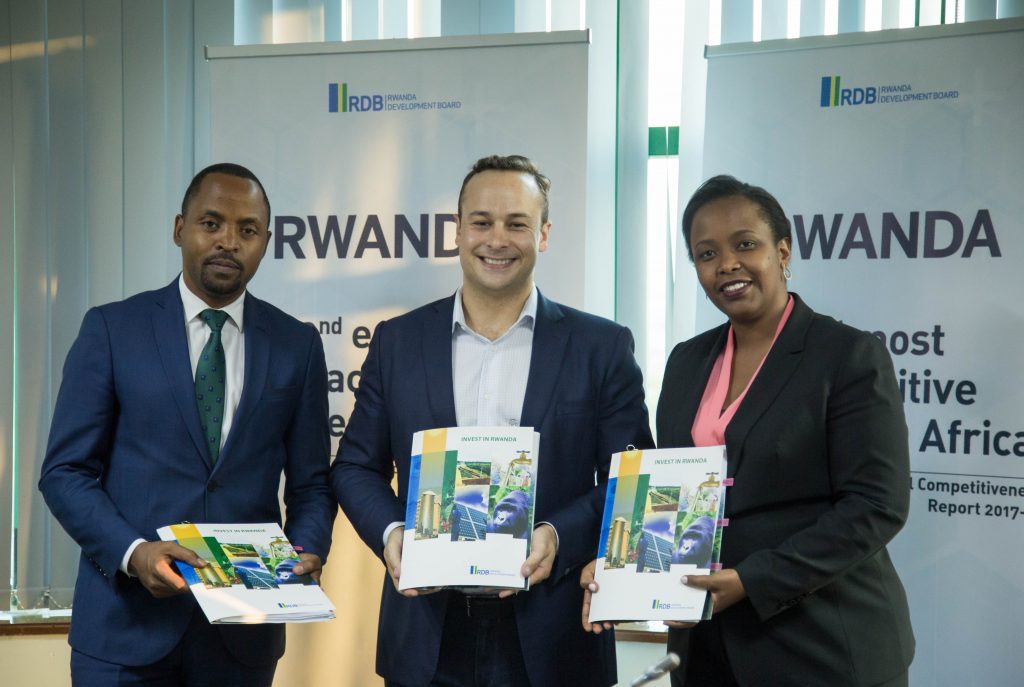

According to Louise Kanyonga, Head of the Rwanda Development Board’s Strategy and Competitiveness Department, private investments have grown by 60% over the last 8 years, and foreign direct investment alone has grown by close to 40%.
The implication:
Rwanda will become the economic capital of Africa and Nigeria will be the biggest free consumer. Even many of our bright minds (inventors and their brightest support staff) will migrate to countries with better business environments and sell back from there. A country like Nigeria may continue to bleed talents.
Note. The emigration crisis in Nigeria is not an entirely new phenomenon. A report indicated that Nigerians made up the largest migrant population entering Italy and Greece in 2016. Eurostat also reported that the largest cohort of migrants trapped in Libya are Nigerians.
But this wave will not be about people desperate for a better life. It will be about people looking for a better environment for their ideas to thrive. We will be losing our resilient best.
We have not positioned ourselves to consummate the opportunities. We cannot!
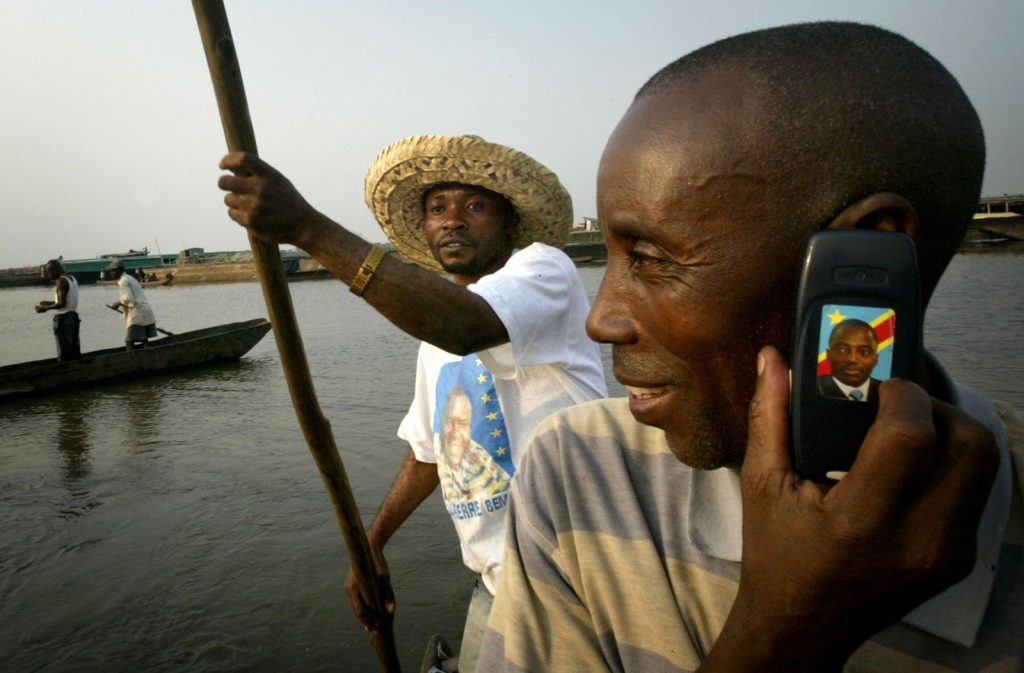

In the final analysis…
One of the hopes of the African Union (AU) Leadership is that the AfCFTA
will help resolve a number of problems plaguing the continent as well as wean it off the heavy reliance on foreign aids.
The truth is that the AfCFTA will reduce the need for aids for some of its members as their economies will improve significantly. The others will need more aids. This time, the givers may be within the continent as well.



